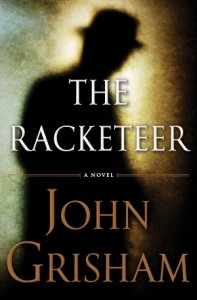 A great writer once told me that to be a good writer, I needed to learn all the literary rules and then forget them all.
A great writer once told me that to be a good writer, I needed to learn all the literary rules and then forget them all.
I remember the first time I shared my craft with a crit group. I remember thinking how lucky they all were to discover my talent. The session didn’t quite go as I thought. They tore apart my writing for one fundamental flaw—Point of View. In the chapter of about fifteen hundred words I switched POV at least seven times. I wrote as if I were watching a movie, each POV a different camera angle. This of course is amateurish and makes for rough reading.
In another crit group, I shared a new piece, expecting agent referrals and publishing contracts. Instead I received fantastic feedback on the concept (new to me at the time) of Showing vs. Telling.
So I upped my game. I avoided any word ending in “ly” and the word “felt” so that I could show instead of tell. (There was a great post on adverbs earlier this month). I wrote much more dialogue and I put my main POV character deep in the scene. I thought that I needed to keep reminding the reader of where my POV character was, how his/her hands were positioned, and where he/she was looking.
Instead of writing, “I picked up the phone.” I might have written something like, “I picked up the phone with my right hand while using my left to shuffle through some papers.
I’d use filtering phrases like “I could see the light glistening through the window from the outside.”
Rather than “Light glistened through the window.”
This type of writing really messes with pacing. I had written a scene as follows:
“Lenny grabbed the back of the trailer with his right hand and while running along he reached as far as he could with his left hand grabbing another part of the trailer and jumped at the same time pulling himself up though he got stuck part way but soon pulled himself up and onto the trailer. “
Rather than, “With some effort, Lenny managed to pull himself into the trailer.”
Also, I failed to give any backstory in my novel for fear of telling rather than showing. So I would get it in by an incredibly long discussion that didn’t quite work. I left my readers with a bunch of questions, because I was too afraid to “tell.”
It seemed as if I swung on the pendulum of poor writing from inappropriate use of POV and too much telling, to the other side of overuse of POV and obscurity.
To address my problems I’ve read, a lot. I take notice of when authors use “ly” words and when they use filtering and why it works or maybe how it could be better. I’ve paid attention to how an author shows a story, how he/she sets it up and establishes setting while still revealing back story, and I think I’m getting it. Maybe those publishing contracts are right around the corner or maybe I’ll have another opportunity to learn and grow or both.
I’m learning that good writing is just one element to a good story. I’ll endure page after page of telling backstory in The Rackateer by John Grisham, because the story is intriguing. I’ll ignore Larry Correia’s overuse of adverbs in his work Monster Hunter International because his story is extremely exciting and funny. I’ll overlook Michael Chrichton’s abundance of point of view filtering in Prey because the story is full of nail-biting suspense. Hopefully someday I can have the privilege of someone critiquing my work after they’ve paid for it.
 I think that it is very unlikely that a person just wakes up one day and realizes that he/she is a fantastic writer. Great authors learn how to write great stories well. It takes time and lots of practice.
I think that it is very unlikely that a person just wakes up one day and realizes that he/she is a fantastic writer. Great authors learn how to write great stories well. It takes time and lots of practice.
I think maybe I’m starting to forget some rules.
